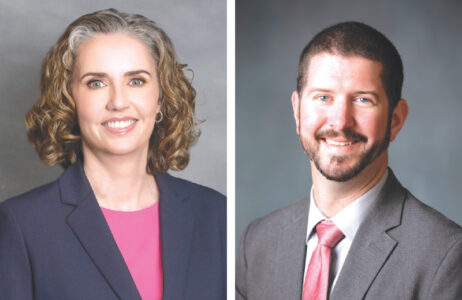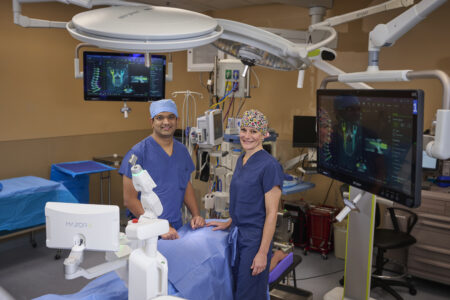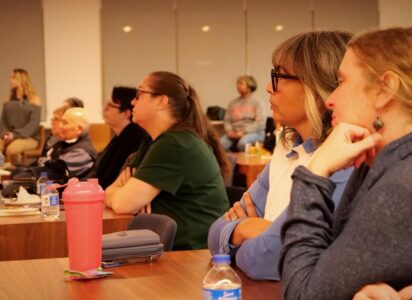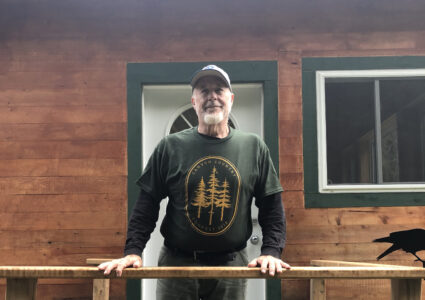Pain specialists at LMH Health say treatment is emotional, not just physical

photo by: Contributed
Dr. Amanda Colgan and Dr. Patrick Harper
Chronic pain affects millions of Americans, often leaving them with limited treatment options and long wait times. But relief is closer than you think. The team at LMH Health Pain Specialists, led by Dr. Amanda Colgan and Dr. Patrick Harper, is transforming pain care with a personalized, patient-first approach.
Both physicians found their passion for pain management during their anesthesia training in residency. Colgan said that while she cared for a variety of patients, she didn’t get to spend time creating relationships. Specializing in pain management gives her the chance to see the progress patients make over time and to get to know them.
Harper agreed and recalled a pivotal moment with a patient living with pancreatic cancer.
“He was very sensitive to opioid medication, even just the slightest bit and he’d be out of it. He knew he only had a few months left to live, and he wanted to spend it with his family,” he said. “I was able to find the right pain solution for the patient, and he was able to live the last months of his life the way he wanted.”
Advanced training
Fellowship training sets these physicians apart. Colgan completed her fellowship at the University of Vermont, and Harper trained at the Mayo Clinic.
“Fellowship is an extra level of training in more advanced procedures, allowing us to more safely and effectively treat your pain,” said Colgan. “Fellowship allowed me to learn more about the procedures that would benefit my patients, such as using radio frequency ablation to treat arthritic pain.”
Traditional pain management approaches often rely on a limited set of options, including trigger point, SI joint or epidural steroid injections. The physicians at LMH Health Pain Specialists offer a broader range of treatments tailored to each patient’s needs.
“We spend time reviewing MRIs and X-rays with our patients, explain what’s going on, and develop a plan together,” Colgan said. “There may be a procedure that provides a more targeted approach. Sometimes an injection isn’t the best option.”
A common misconception about managing pain is that the physician’s primary role is to prescribe opioids. Patients may hesitate to seek care because they’re afraid that they’ll only be offered medication.
“There was a time when the thought was everyone should have an opioid even for a minor injury. My fellowship training took an entirely different approach,” Colgan said.
Harper had a similar experience.
“I trained during a time when opioid risks were becoming widely recognized,” he explained. “We’ve seen patients who have been on high doses for years, and we’ve been able to wean them down and off the medication and use other strategies to treat their pain.”
Treating the whole person
Pain isn’t just physical — it’s emotional and psychological too. Colgan said that patients often feel anxious when they don’t understand the cause.
“Your MRI report will often include words like lumbar spondylosis, and that can sound scary. What that really means is that you have arthritis in your back,” she explained. “As we age, we all start to see degenerative changes in our back, and that results in the changes and pain we experience.”
What can you do to help with age-related pain? Both doctors recommend exercise to strengthen your pelvic floor and core — your stabilizing muscles. Whether it’s physical therapy, Pilates or something else, find exercise you enjoy to help maintain your core stability. Everyone can benefit from that.
There’s also a psychosocial aspect of pain. When you hear this term, it means how things like stress, anxiety, depression, family life and work can affect how you experience pain. Harper emphasized that doesn’t mean that your pain isn’t real.
“All of these factors can intersect and change your experience of pain. Treating it can involve more than just physical treatments. Things like cognitive behavioral therapy can sometimes really help,” he said.
Expanding access and expertise
Harper joined LMH Health in 2019 as the sole physician at Lawrence Pain Specialists. Over the last five years, the clinic changed names to LMH Health Pain Specialists and added Colgan and nurse practitioner Mo Yost. Adding these clinicians has improved access to care.
“Before Dr. Colgan joined, it took two to three months for a new patient to get in to see me. When you’re in pain, that’s unacceptable,” Harper said. “It’s also great to have another person to bounce ideas off. We all have different backgrounds, skill sets, strengths and interests, which allows us to make sure patients are getting the best care possible.”
One challenge that many health care providers face is prior insurance authorization. The length of time it takes to get that authorization really depends on the kind of insurance you carry.
“About 85% of our patients need prior authorizations,” Colgan said. “We can generally proceed with Medicare patients quickly, but Medicare Advantage and other carriers can take up to 15 days. It’s unfortunate but there’s a lot of waiting in the current insurance environment.”
Despite the delays, the team works to get patients seen quickly.
“If we’re able to get that authorization sooner, we’ll work to get you in the clinic as soon as possible,” Harper said.
Realistic hope
Living with pain can make life difficult. The team at LMH Health Pain Specialists can help you find relief, but Harper said it’s important to set realistic expectations.
“We have great options for care, but that doesn’t mean that I’m going to make you feel like you’re 20 years old again,” he explained. “I may only be able to reduce your pain by 80%, but hopefully I can make it so that you’re more functional in everyday life.”
If you’re living with pain, contact LMH Health Pain Specialists. They offer treatment and hope, right here in your own backyard.
“We take the time to talk with you, review your images and provide the best options for you,” Colgan said. “We don’t want you to have to come back endlessly to find relief. Our goal is to get you back to the best physical shape we can.”
— Autumn Bishop is the marketing manager and content strategist at LMH Health, which is a sponsor of the Lawrence Journal-World health section.






